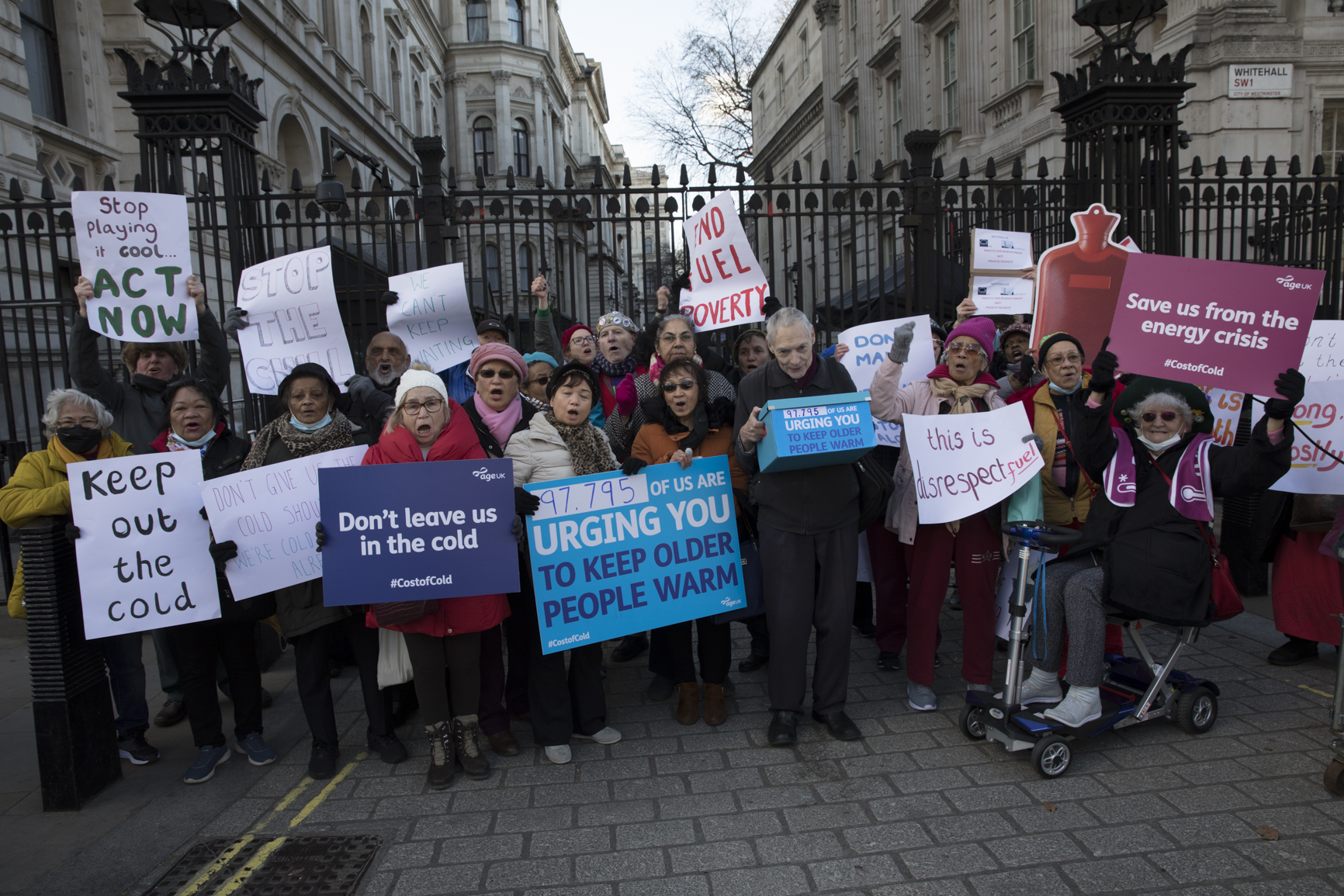Please note:
This article was published in February 2022, so some information in it will now be out of date. For up to date information on cost of living payments, visit our information and advice section.
With energy bills going up by record amounts from April, this is a time of fear and frustration for older people, many of whom already struggle to make their payments. But why is this happening? How has the Government responded? And what happens next?
Why has this happened?
Pent up demand for energy after COVID-19 lockdowns and wider geo-political factors have sent wholesale prices soaring. High prices have continued into 2022 and are expected to persist through to 2023. In response, Ofgem, the energy market regulator, has announced that the Energy Price Cap will increase from April.
The cap works by setting a maximum limit on what energy suppliers can charge customers on standard variable tariffs, per unit (kWh) of electricity and gas. This limit isn’t on a customer’s total bill, which will vary depending on how much energy they use. Around 22 million consumers are protected by the cap.
The increased cap will be implemented from 1 April, with Ofgem’s change representing a 54% rise compared with today’s prices. Standard variable tariffs are expected to increase by an average of £693 for the year. For those using a prepayment meter, the average increase will be around £708. This means customers will see their total average annual bill rise to £1,971 with prepay customers paying slightly more – around £2,017.

How has the Government responded?
In response, the Chancellor, Rishi Sunak, has announced three new support programmes. These schemes are designed to provide support to consumers and sit alongside existing support such as the Cold Weather Payment and Winter Fuel Payment:
- A £150 Council Tax rebate for households in Council Tax bands A-D to be delivered from April. The Government is aiming to make these payments automatically and the scheme should cover around 80% of English households. Wales, Scotland, and Northern Ireland are not included in the scheme but should receive proportionally similar levels of funding.
- A discretionary fund of £144 million has been proposed to support those missing out on the Council Tax rebate (e.g. low-income households who do not pay Council Tax or live in properties in higher Council Tax bands).
- All electricity customers will receive £200 off their energy bill from October. This £200 will then be paid back through £40 instalments added to bills across a five-year period starting from next year. Northern Ireland will receive £150 million to enact a similar scheme.
The Government has also confirmed that they will go ahead with proposed improvements to the Warm Home Discount scheme later this year. We welcomed the Government’s proposals and explained how the Scheme could better support older people.
What more needs to be done?
The Government’s new schemes fall far short of what is needed to protect older consumers from unmanageable energy bills come April. A toxic cocktail of high energy prices and wider increases in the cost of living are stretching people’s already limited budgets. Older people are particularly affected by these price pressures, with many struggling on a low-fixed income which simply won’t cover April’s price rises. Older people also have higher heating needs, spend longer at home and are more vulnerable to the effects of the cold.
In a best-case scenario, where an older person gets access to both the Council Tax and energy bill rebate, they will receive £350 this year. But with bills increasing by an average of £693, that still leaves them with a £343 gap in their finances and that’s before accounting for how much bills may rise again in October. We believe the Government need to rethink their strategy and ensure that support packages better mitigate the impact of energy bill rises without placing a long-term burden on consumers.
Age UK is campaigning for greater support to ensure older people have the confidence to heat and power their homes. Almost 100,000 people signed our letter to the Prime Minister calling for improved financial assistance and thousands more have got in touch to tell us how energy price increases have impacted them.
Age UK will continue working to ensure the Government and Ofgem have the wellbeing of older people uppermost in their minds. It has never been more important that older people can afford to stay warm and well at home.
Older people and their families who are concerned about the cost of their energy, or their supplier failing, can contact the Age UK Advice Line on 0800 678 1602.
Our Winter Wrapped Up guide has tips on staying warm and well at home. Guidance on reducing your energy costs can be found in our Save Energy Pay Less guide and Help with Heating Costs factsheet.

